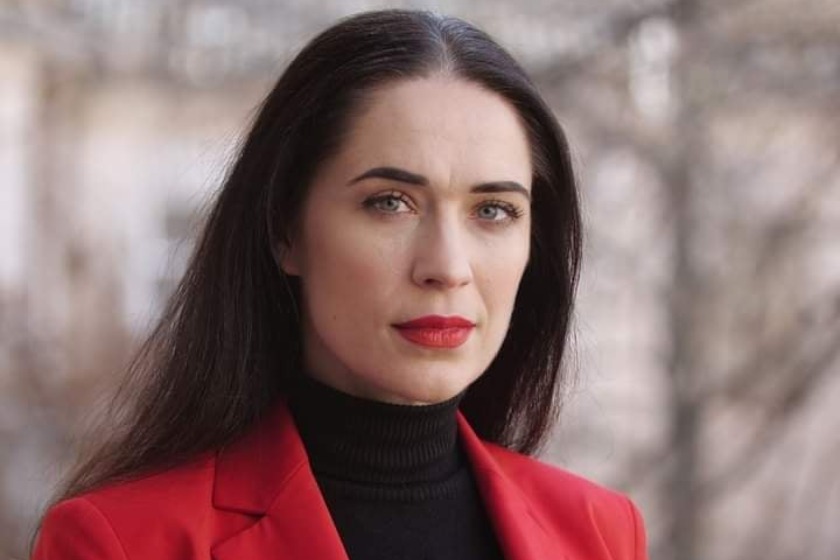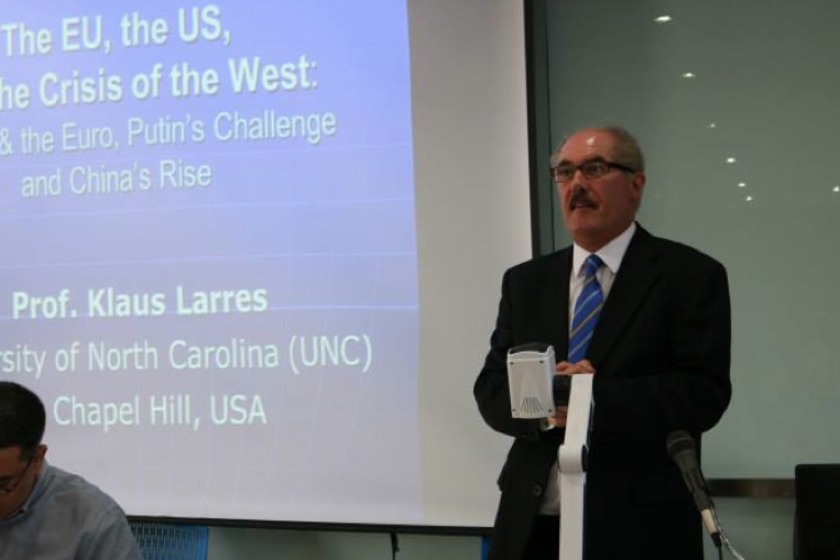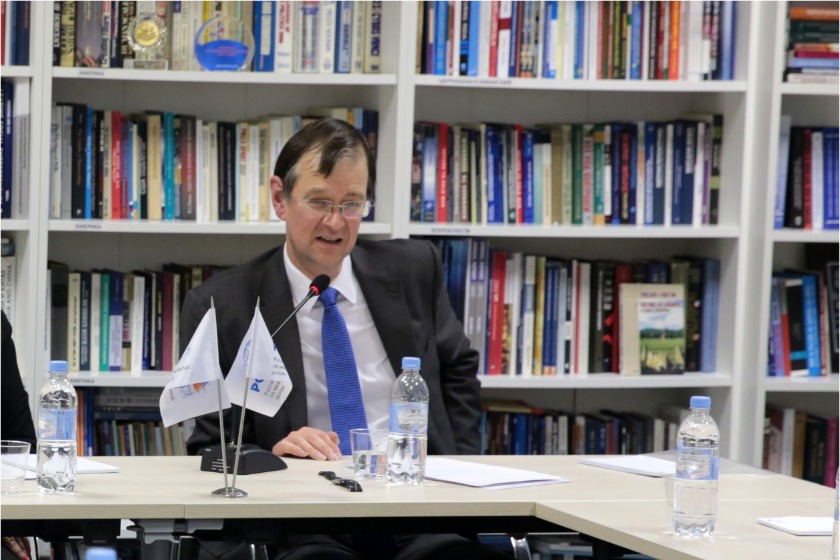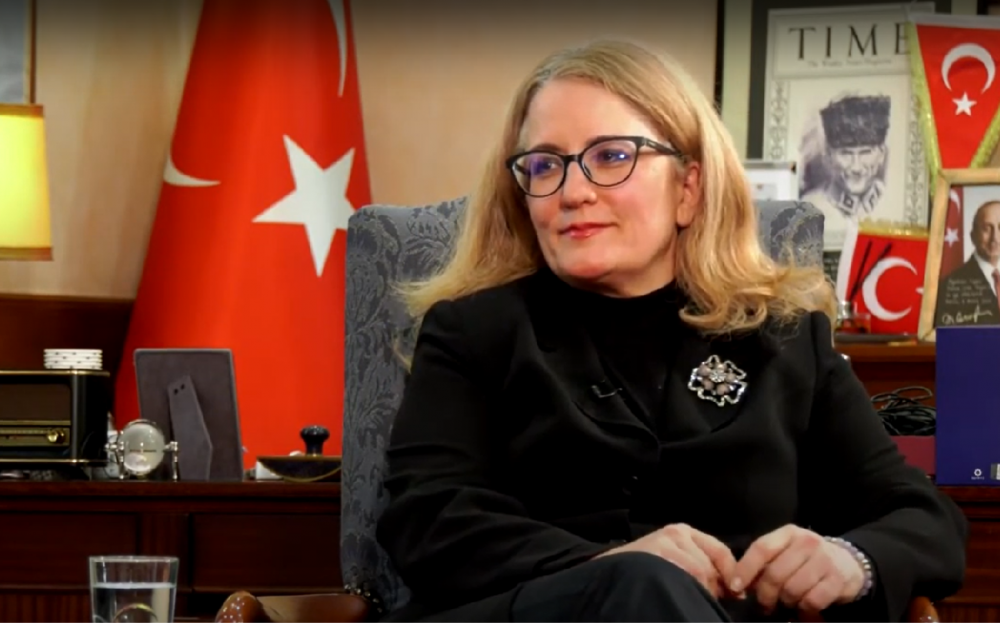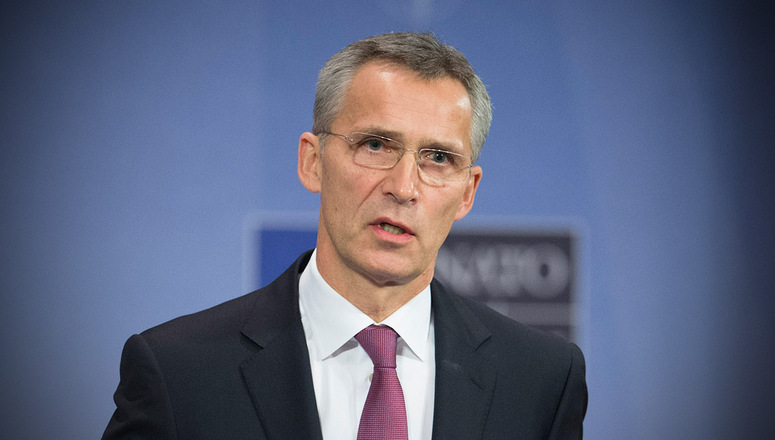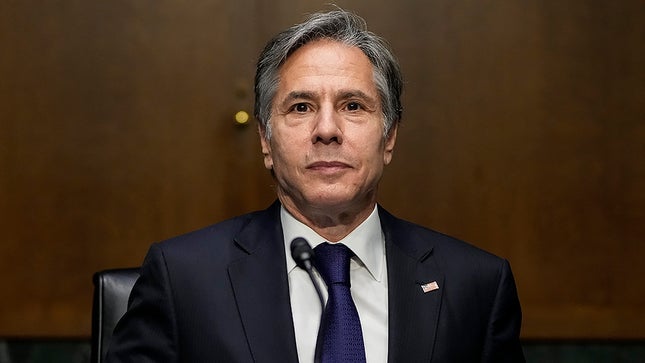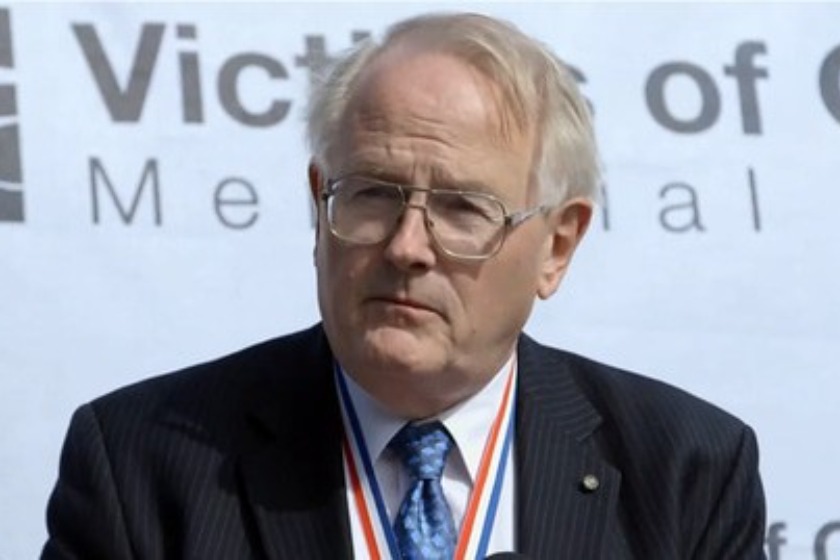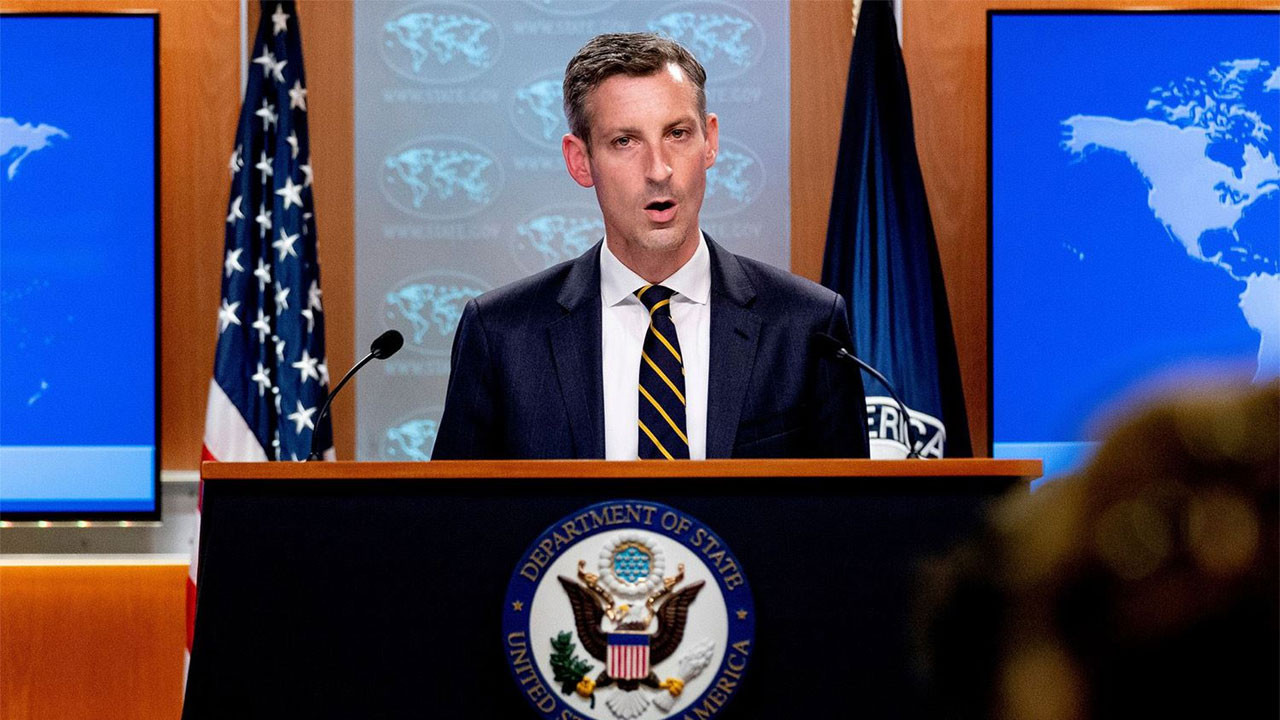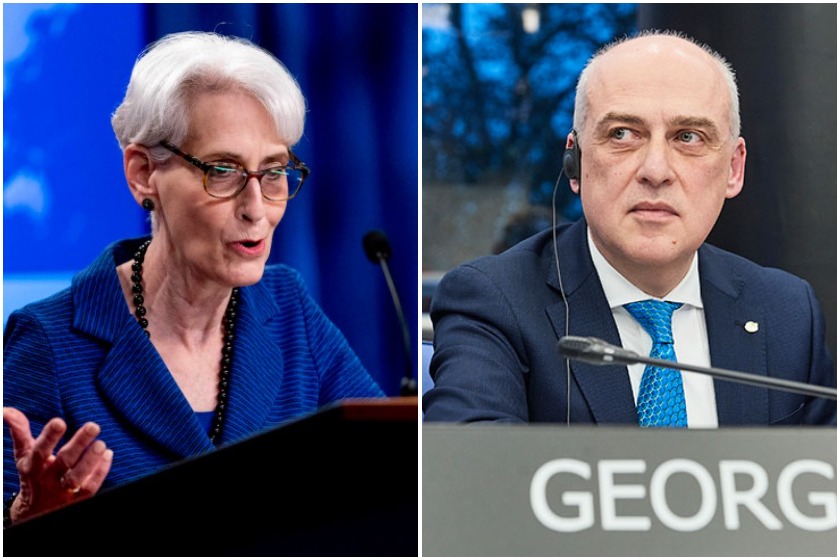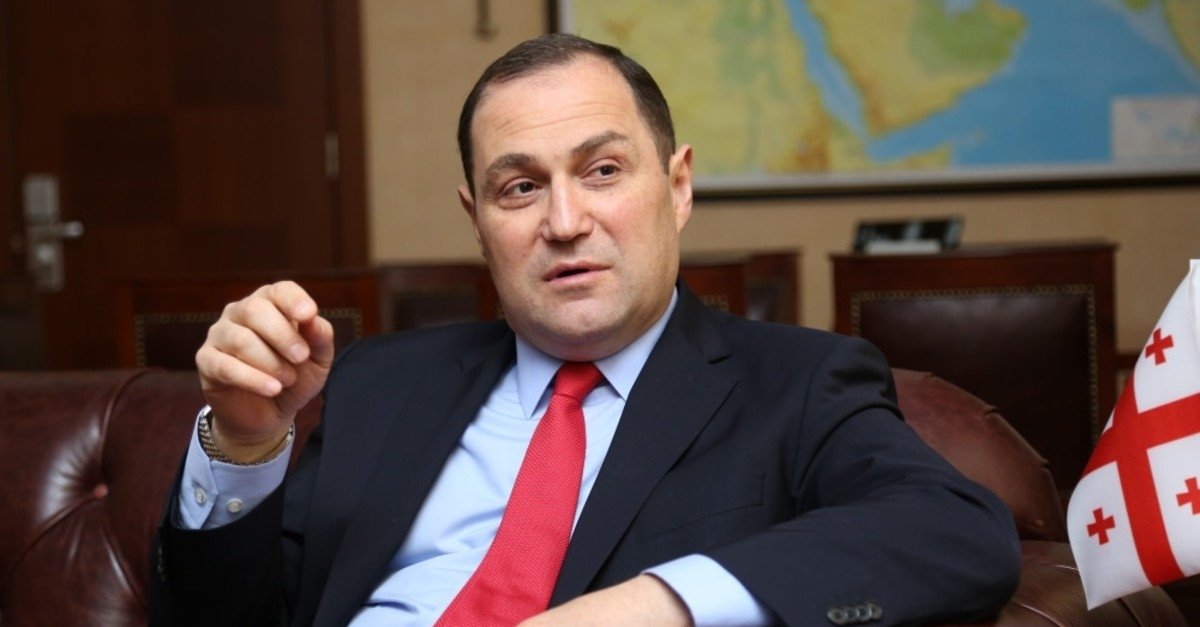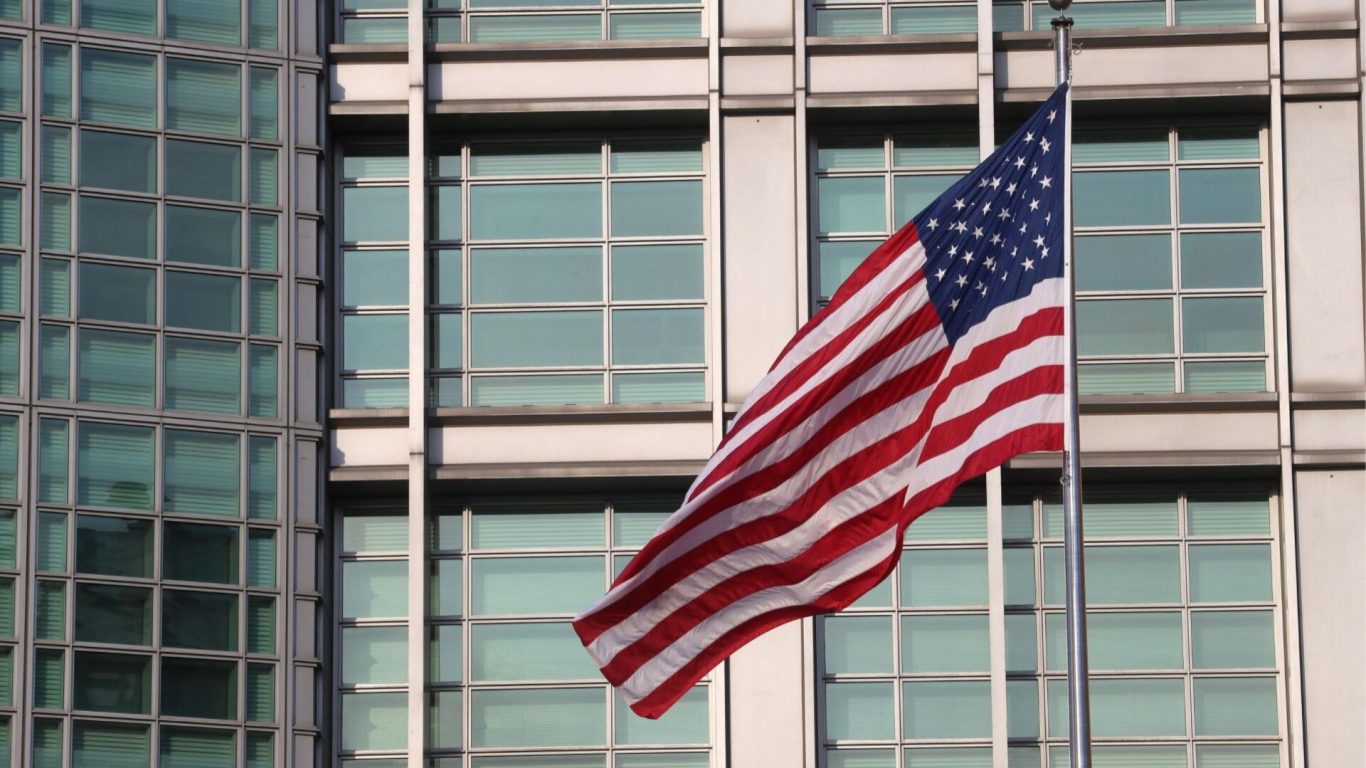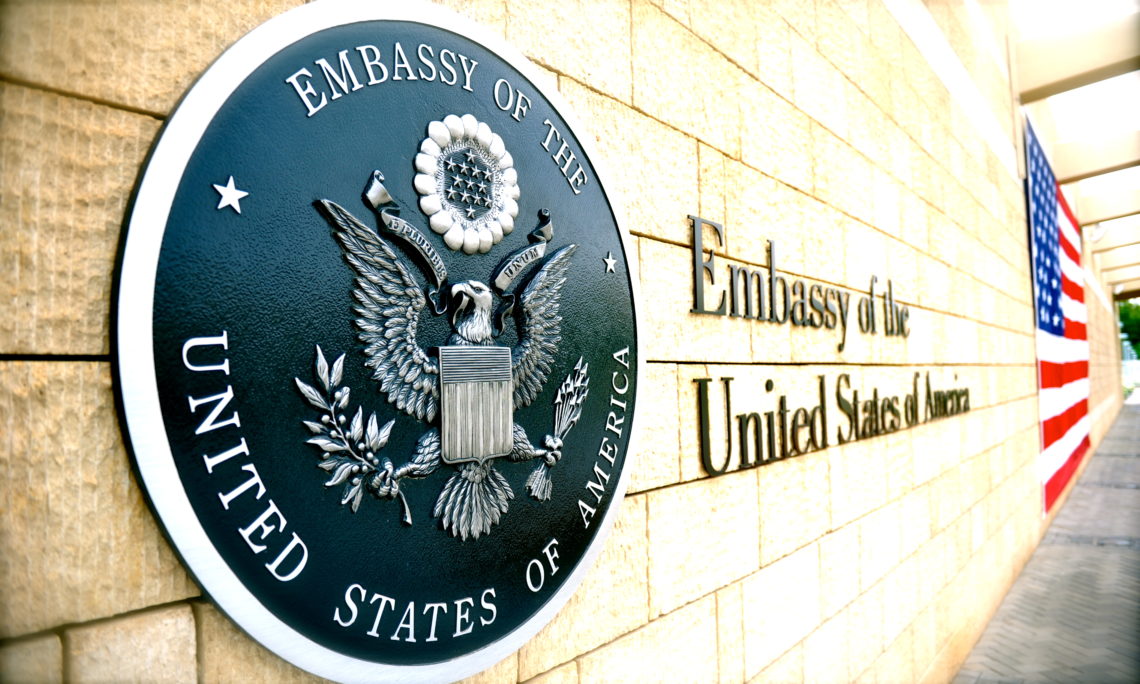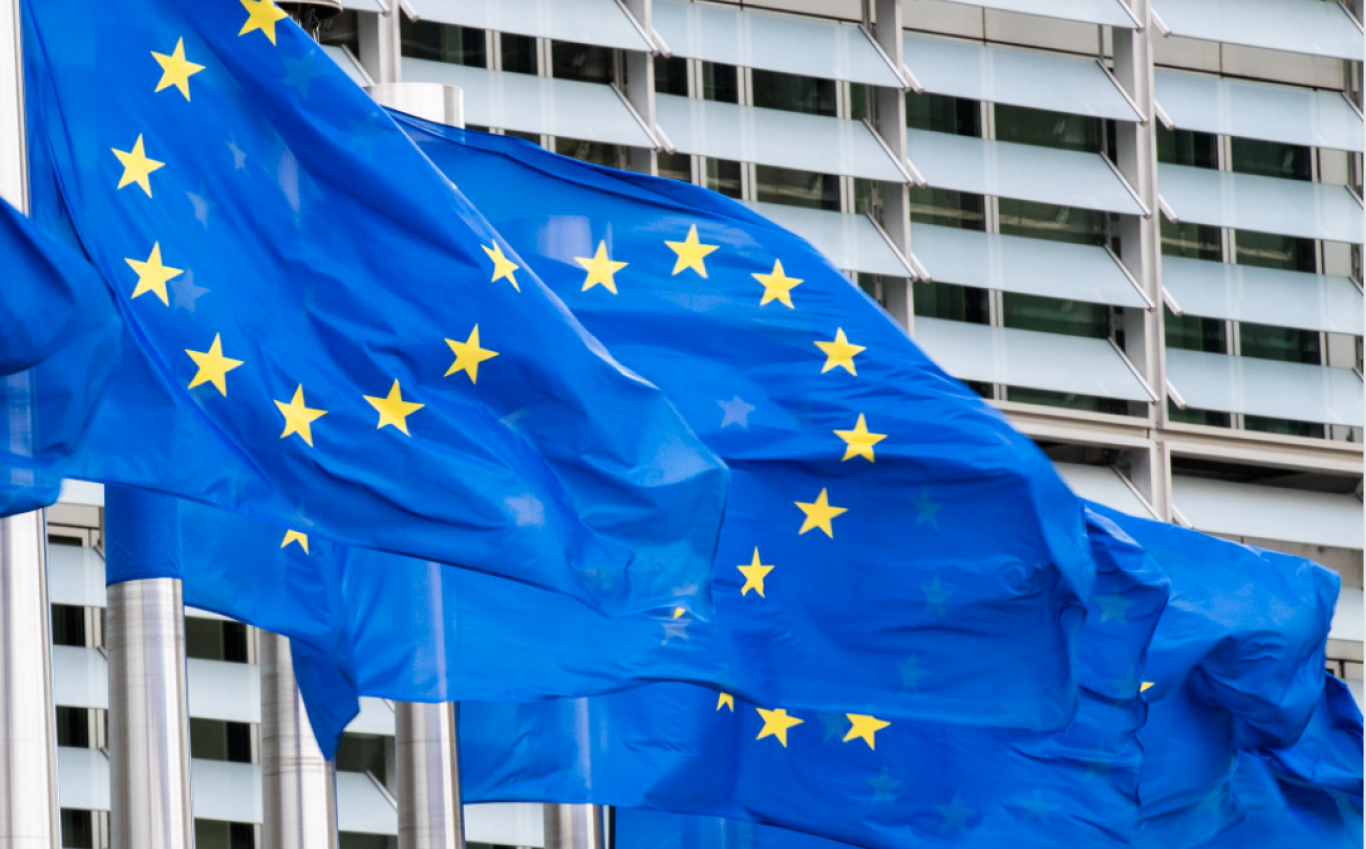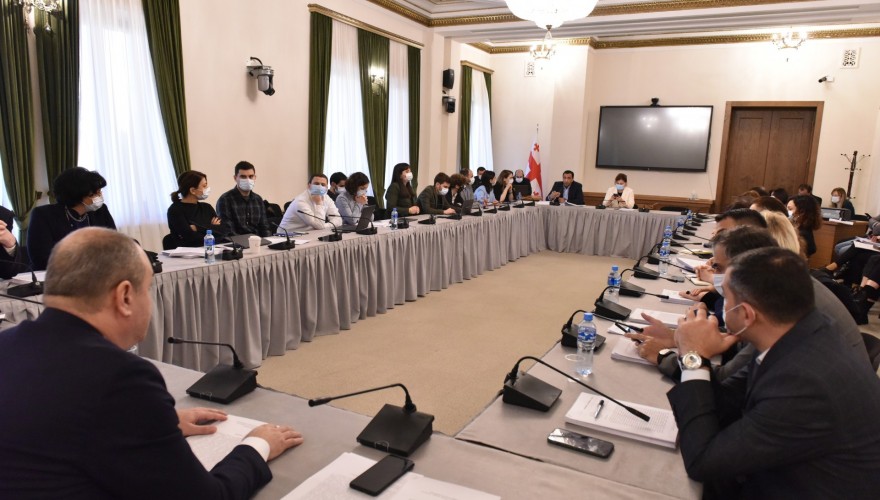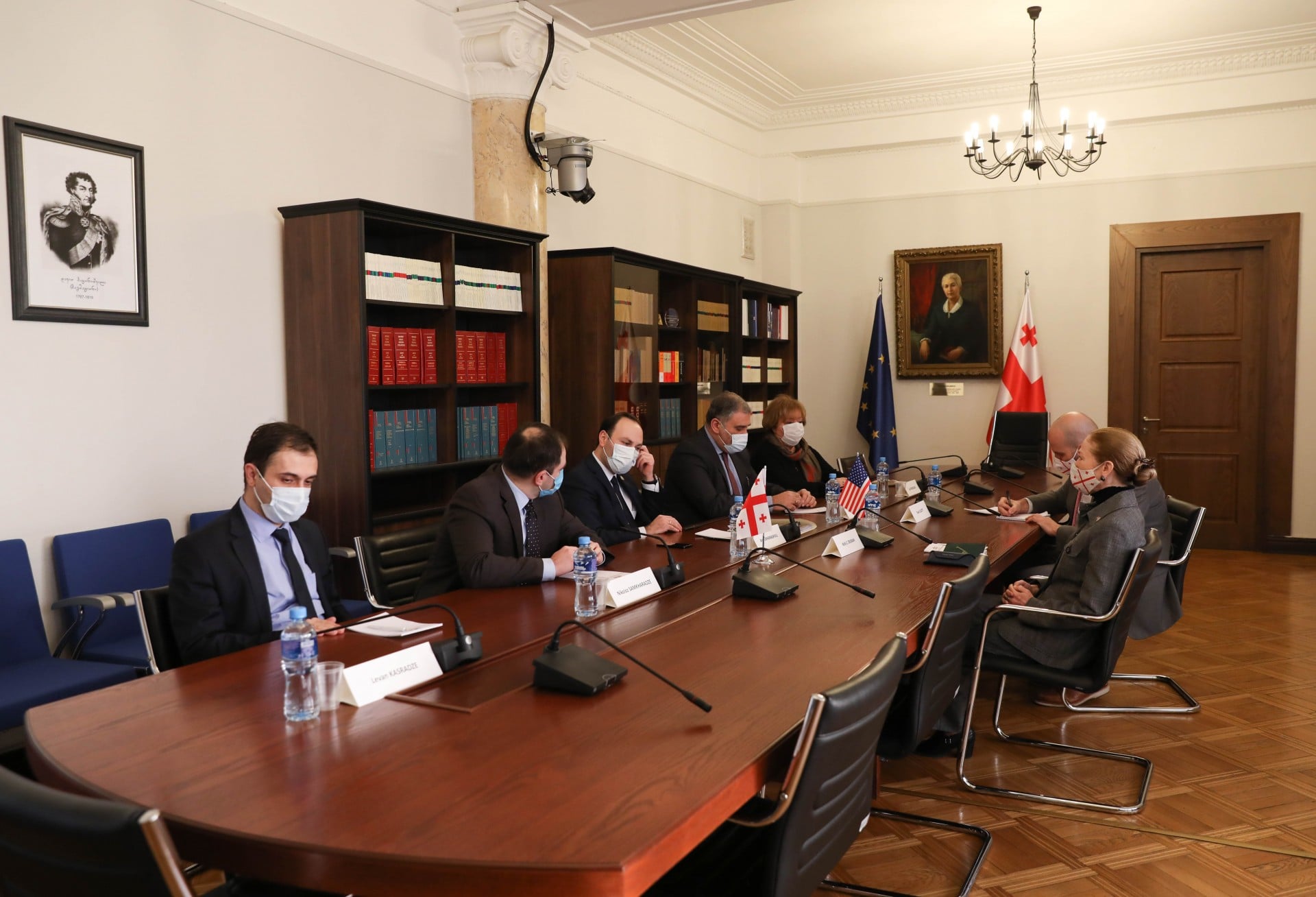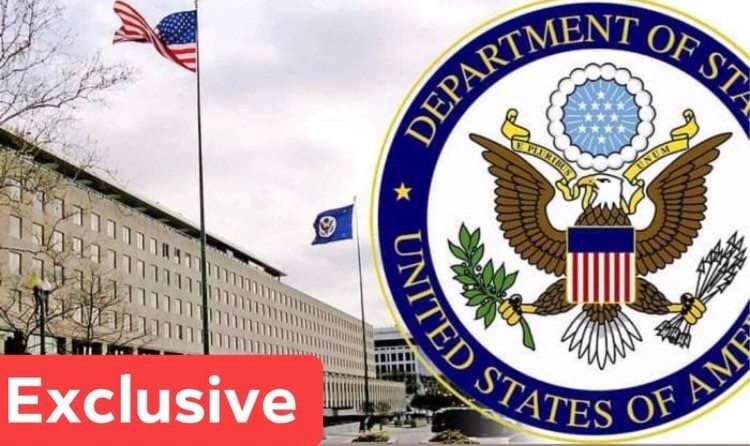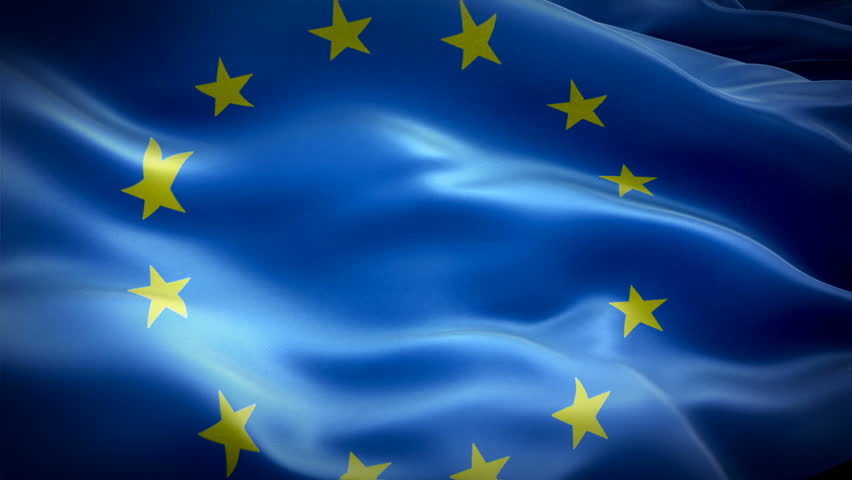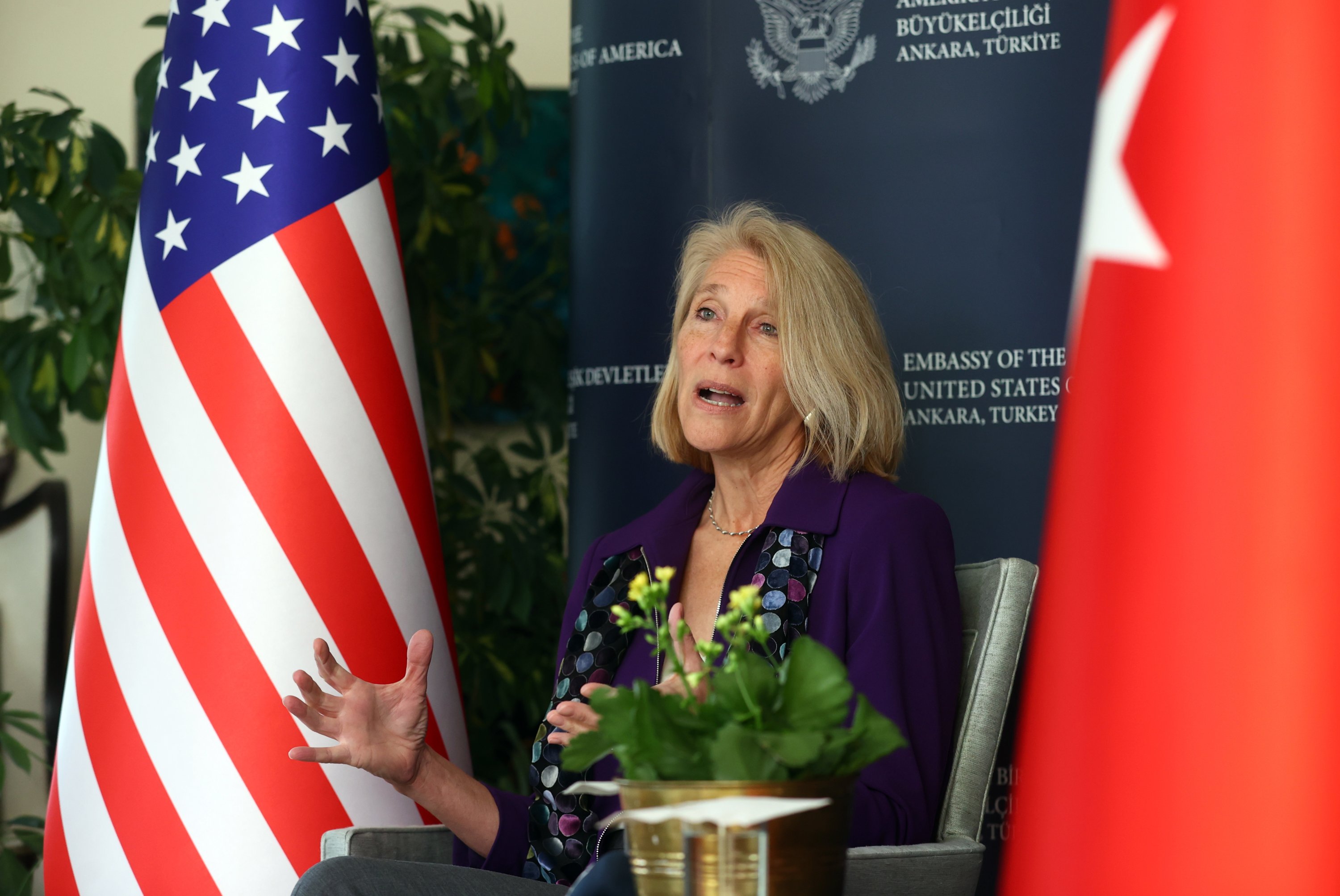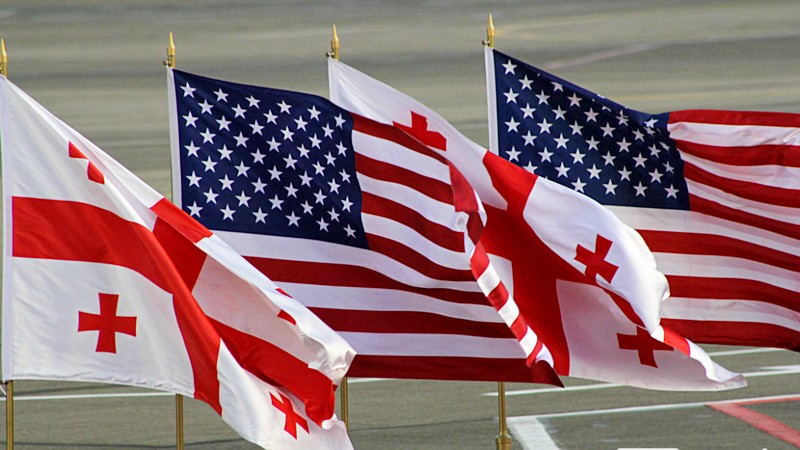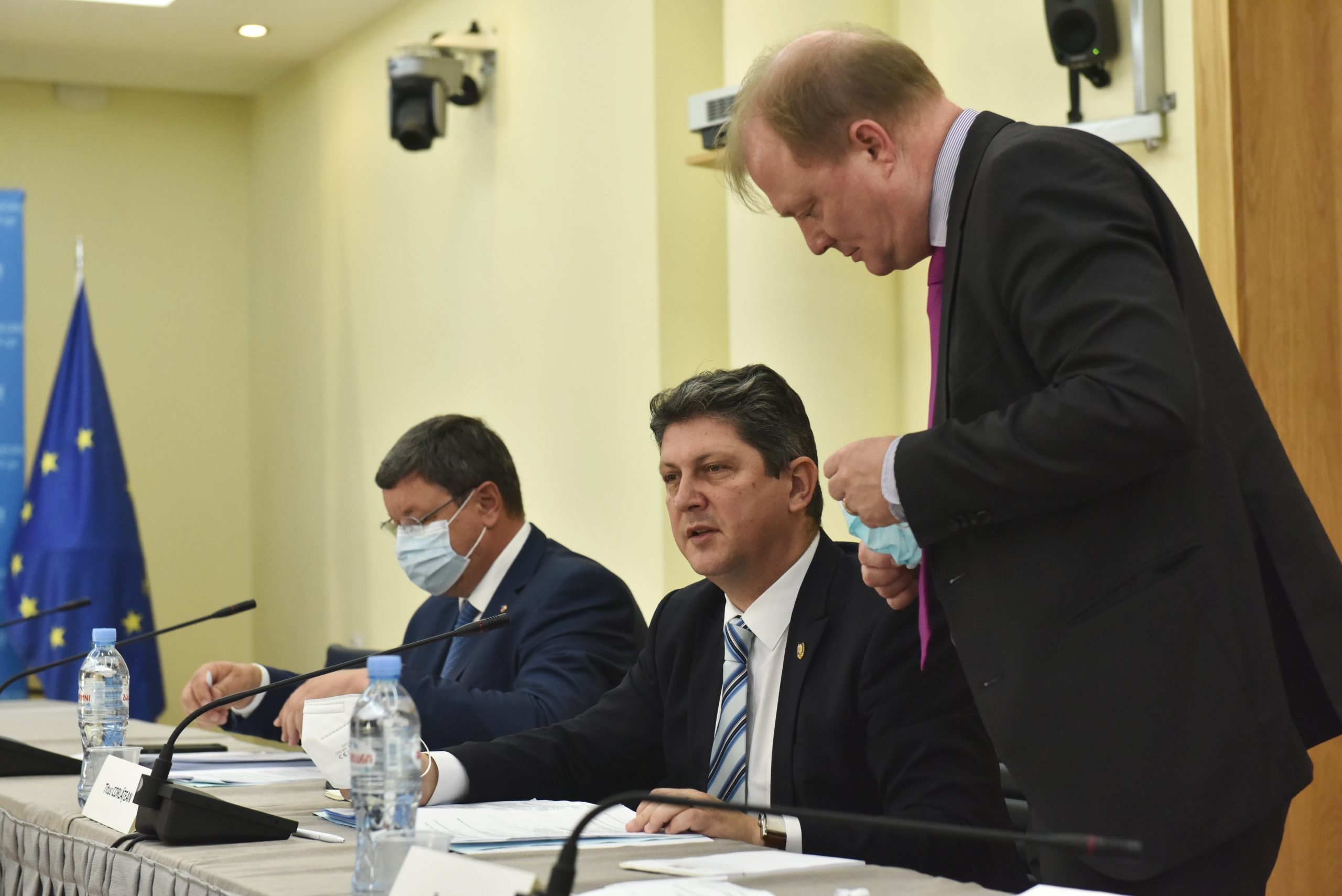news
Russia may use its forces to play muscles to raise the political stakes in negotiations - Hanna Shelest
Tensions over Ukraine are getting worse. Experts discuss the real danger of conflict. The world awaits written responses from the US and Russia to their suggestions, while intelligence services from several countries point to the Kremlin's clear plan to destabilize Ukraine. According to reports, the British government received information on the Russian government's plans to establish a pro-Russian leader in Kyiv. In an interview with Europe Time Hanna Shelest, Director of Security Programmes at Foreign Policy Council “Ukrainian Prism” discussed Ukraine's expectations and topics on how they analyze threats. ET: Let me start with the Associated Trio, as this was a topic you and your coworkers were discussing. Why is this format so crucial right now? It is an important issue from a political point of view because it is always easier to advocate for some changes or positions when it is not just one country. A louder voice and a strong position are important and need coordination. All three countries have association agreements. We have ambitions for EU integration, but at the same time, we have very practical issues to move forward in relations with the EU, such as roaming-free agreements, open sky, etc., that can be promoted. And also, we have our individual tracks. In addition, these states are sharing threats and risks inside the country as well as external threats. When we have three presidents coming and talking, it definitely has more value and more power in Brussels than single approaches. In some ways, it also reminds many European countries of the Visegrad countries' path, with similar goals and decisions. So, for some Western European countries, it is certainly a positive reminder of that path of European integration, and it can help in promoting A3 integration. ET: The context is critical right now, especially in light of the ongoing processes in Ukraine. The countries are continually threatened by Russia. The question is how the countries share the perceptions of threats. And how they see their future. Moldova is a neutral country. Ukraine and Georgia would like to become NATO members and are searching for a NATO mechanism for protection and cooperation, while Moldova has its cooperation with NATO at a certain level. As a result, three countries see this format of the Association Trio as promoting political and economic stability rather than security issues. Perhaps when we discuss security concerns such as resilience, cyber issues, or critical infrastructures, those issues can be considered in relations with the EU? Hard security and conflict are not topics for which the European Union is ready to work at the same level as these countries would like to. ET: Special attention is being paid to Ukraine right now, where there is an unprecedented concentration of Russian forces along its borders; your colleagues also mentioned the danger of conflict; you represent this country (Ukraine), and I'm concerned about your view. The risk of war has been high for eight years. The question is that now the scale of the Russian build-up is much greater than before. At the same time, they may use these forces to play muscles - to raise the political stakes in negotiations. So they bring in more forces and more strategic weapons just to demonstrate that they are serious about their request. So, in this way, we should not be panicking. We must be determined to protect ourselves and maintain contact with our allies in order to send a signal to Russia that we are not alone. ET: What's your opinion about the accelerating membership process of NATO in the face of Russian aggression? The problem is that we still have the biggest fear of many European countries that do not support the immediate membership of Ukraine and Georgia that, by this act, they would provoke Russia. They are afraid to give us MAP for fear of being attacked. But Russia is already considering NATO as a threat, and it has already provoked the conflict in Europe, and many raise a question, will it act like this if Ukraine and Georgia have had the membership action plans. Ukraine and Georgia should use each of their opportunities to increase practical cooperation. It does not matter how we name them, MAP, or annual national plan. What is important is the substance, to speak about the real plan of cooperation that will be on a level that we have never had before. I mean, to be almost members in terms of cooperation without formal membership. But at the same time, we are consistent in our statements about why we would like to have a membership, and it is not just protection from Russian aggression, as we are ready to contribute to Euro-Atlantic and European security. That is why many countries are waiting for us to be more than just security consumers; we need Article 5, but we also want to be security providers for other European countries. ET: What are your expectations from the talks between the US and its allies and Russia? We definitely expect at least a decrease in escalation and build-up at the Ukrainian border. We don’t believe that Russia will give up or that NATO will accept the Russian ultimatum. But if the level of tensions decreases and the conflict moves to the negotiation table, that will already be a good result. However, we do not have high expectations. Russia needs these talks both for domestic propaganda to show that they decide the future of Europe just between Moscow and Washington, as it used to be in Soviet times. And also, for international narratives promotion, making partners choose the side and some European states doubting whether Russia has reasons to behave like this.
Whether or not Putin succeeds with this kind of illusionary ‘grand power’ scheme depends a lot on the developments at the Ukraine border - Professor Klaus Larres
The US is planning to transfer Mi-17 military helicopters to Ukraine. Earlier, Ukraine received 90 tons of lethal weapons from the US. The Baltic States sent US-made anti-tank and anti-aircraft missiles to Ukraine. The United States and NATO partners will conduct a 12-day maritime exercise in the Mediterranean Sea, beginning Monday, US Department of Defense spokesperson John Kirby said on Friday. The maritime exercise, called "Neptune Strike '22," will run through February 4 and is meant to demonstrate and test NATO's maritime capabilities, according to Kirby. Russia is also set to hold maneuvers at the same time. The announcement came just hours after US Secretary of State Antony Blinken held talks with his Russian counterpart, Sergei Lavrov, in a bid to de-escalate tensions surrounding fears that Moscow might be preparing to invade Ukraine. Klaus Larres, professor at the University of North Carolina, spoke to Europe Time about what to expect from the discussions between the US, its allies, and Russia, whether they have a chance, and what purpose they serve. ET: How do you evaluate the dialogue between the US, its allies, and Russia? It is a very crucial time and I think we should not be discussing just relations between the United States and Russia, like during the cold war, but Europe should also have a role. The European Union should be a number three partner in these talks. Of course, when we talk about Ukraine, you really need to involve the Ukrainians themselves. If Georgia were on the agenda, it should be a part of the discussion too. But certainly, the EU should be a part of them. ET: What perspectives do you see from these talks? We don't know whether Putin ever expected something to come out of these talks, but refusing to engage in talks would look bad to the international community and the Russian public. The same applies to the U.S. and their public. Neither Putin nor Biden could not engage in discussions. Of course, the West should try to talk to Putin and Russia, but whether it is productive in the end is difficult to say. Last week was not productive; both sides have certain viewpoints, and they didn't move at all on them. ET: If the talk was a non-starter from the beginning, where should we look for its purpose? In the eyes of both international and domestic public opinion, I believe the US had no choice but to engage in negotiations with the Russians. I think the same applies to Putin. He probably needs an excuse if he really wishes to invade Ukraine. Then he can turn around and say "See, I tried to talk to them, I tried to have negotiations but this dialogue was in vain, they did not wish to make any concessions." This would be his justification for claiming to have done his best to make an invasion unnecessary. As the talks were unproductive, despite his allegedly best attempts, he will claim that he had no choice but to embark on some sort of new invasion of Ukraine. ET: Do you see the risk of war? Yes, I think there is a real risk of war, unfortunately. It will be difficult for Putin to say, after his tough rhetoric and his many demands that have not been fulfilled, "I massed over 100.000 troops at the border of Ukraine, I deployed 1500 tanks and much ammunition and other heavy weapons, at a great cost to the Russian economy, and now I just withdraw them again without having realized any of my demands." To the Russian public, this would appear to be a disaster. This would not look like Putin as a strong man and a powerful man. That would look like Putin as a weakling, and we know Putin hates looking weak. So he has to do something, and if the talks remain stalled, the only option he has is either a full invasion or a hybrid invasion, cyber warfare that has already started, or maybe some partial occupation of Ukraine. But it is unlikely that he will just withdraw and say, "I just wanted to talk and now I am going back home without having achieved any concrete results." This is unlikely. ET: What does this signal for Georgia? I think other countries, like Georgia, Belarus, Kazakhstan, and other neighboring states, will view Putin’s actions very carefully. And Putin knows that. He wants to put his foot down and claim that there is a Russian sphere of influence and that he is not flexible about it. He wishes to reestablish Russia as a powerful geopolitical player; he wishes to increase and maintain Moscow’s global influence. What is happening in Ukraine is clearly intimidating other countries in the Russian neighborhood, including Georgia. They will be even less inclined than they are already to pick a fight with Putin. I believe the Georgian government tries to steer a very carefully calibrated course toward Russia. It does not want to be too friendly, but it does not wish to be too unfriendly toward Moscow either, despite Georgia’s serious territorial conflicts with Russia. And that is probably the lesson for many countries to learn: „you have to make peace with Russia to some extent and you need to find some sort of friendly accommodation with Moscow or you will have serious problems“, - And this is the lesson Putin wants to convey. This is certainly the lesson Putin wishes other countries to learn and then stick to – „There is a Russian sphere of influence – essentially the territory of the former Soviet Union - and all the countries in it have to consult closely with Moscow and in the last resort have to accept Russia’s wishes“. Whether or not Putin succeeds with this kind of illusionary ‘grand power’ scheme depends a lot on the developments at the Russian/Ukraine border and how the US and the EU countries are dealing with the crisis and whether or not they are standing up to Putin’s aggressive behavior.
This is a moment when the maximum amount of consolidation of society is very important for the survival of both Georgia and Ukraine - Ian Bond
Europe Time Interview with Ian Bond, Director of Foreign Policy, Centre for European Reform, London. Ian Bond joined the Centre for European Reform as director of foreign policy in April 2013. Prior to that, he was a member of the British diplomatic service for 28 years. His most recent appointment was as political counselor and joint head of the foreign and security policy group in the British Embassy, Washington (2007-12), where he focused on US foreign policy towards Europe, the former Soviet Union, Asia, and Africa. He was British Ambassador to Latvia from 2005-07, receiving a CVO (Commander of the Royal Victorian Order) for his work on the Queen’s state visit in 2006. ET: What are your expectations from the dialogue between the US and its allies and Russia? My expectations are very low because the two sides are talking about completely different subjects. We had the extension of the New START treaty at the very beginning of Biden's period of office. But still, some arms control work could usefully be done, on shorter-range nuclear weapons. Some replacement of the INF treaty with effective verification – which is something we haven’t had in recent times. Also, restoring the confidence-building measures we used to have, which Russia blocked a few years ago, on notifying military exercises and allowing international observers to see what is going on and make sure nothing threatening is being done. As for the recent agenda, what Russia wants cannot possibly be on the agenda, which involves the US saying that NATO will not accept new members like Georgia or Ukraine and other countries that want to join. ET: What do you think about Ukraine and Georgia joining NATO or accelerating the process in the face of Russian aggression? At this stage, much as I might think the membership of Georgia and Ukraine would be a good thing, it is not going to happen very quickly and, with the position of countries like Germany and France, it is probably not going to happen at all. So it seems to me that there are a number of steps that both Georgia and Ukraine can take. First, both Georgia and Ukraine are internally divided at a time when they need internal solidarity. I am not going to say who is to blame for this. But Saakasvhili has been arrested. Poroshenko is threatened with arrest or prison time in Ukraine. It seems to me that this is a moment when the maximum amount of consolidation of society is very important for the survival of both Georgia and Ukraine. The second thing is that, in terms of cooperation with the EU and NATO, both Georgia and Ukraine have to make the maximum effort to reach NATO and EU standards. That will help the countries economically and also in military terms. And the third is in terms of developing bilateral relationships; for example, the UK sent anti-tank missiles to Ukraine yesterday to assist the Ukrainians. ET: What steps should be taken by Ukraine and Georgia? I think both Ukraine and Georgia need to prioritize what the most important things are that the military forces do not have. They need to identify them, with NATO countries or other countries as well, to prioritize which systems and what training they most need, and then go to countries bilaterally and try to get them to provide that assistance. It seems to me that both Ukraine, Georgia, and Moldova need to make themselves as resilient as possible to deter any kind of Russian aggression. There is no question that it is a crucial time for European security. This is the most dangerous time we have seen since a long time ago. Putin sees weakness in the west and in the countries he is facing. He sees internal political divisions and sees Georgia and Ukraine as weak, and he sees Biden as a weak president facing a divided US. And we have a presidential election coming up in France, and France is quite distracted. We have a new government in Germany that is still trying to work out what its policies are. And in the UK, we have a country that is weaker because of Brexit and is internally divided because of Brexit. So I think Putin probably sees this moment as an opportunity. That makes it a very dangerous period for European security. If you look at the size of the Russian economy, it is very small compared with the economies of NATO countries. So the question is, can NATO use the advantages that it has? If it does so, then it should be able to deter any further misbehavior from Putin. But if NATO countries all go in different directions, playing different games, then we will be much weaker.
The Turkish Ambassador's opinion on the "3 + 3" format - exclusive
Fatma Jeren Yazgan, the Turkish Ambassador to Georgia, spoke exclusively to Europe Time on the "3 + 3" format. „It is one of the platforms that bring countries in the region together to discuss some of the projects where all the regions can benefit. It is specifically important, and we think that it is a good idea, but there can be other formats that we can talk about with our partners. "-Fatma Jeren Yazgan said. Regarding Georgia's refusal to join, the ambassador states that this is a Georgian decision that Turkey respects. „It is Georgia's decision, which we respect, but we would not, of course, take or lead any decision in Georgia's absence about Georgia. We would like Georgia to be present, but it depends on whether or not the Georgian government and people would like to be there. We inform the government of Georgia before and after the meeting and keep them informed of what is being discussed. We met with the foreign minister and informed them of what we talked about. There will be other meetings. Accordingly, we will see. There is nothing that is pressed about this platform. So, anyway, we work with the Georgian government bilaterally as well as in the format of Azerbaijan, Turkey, Georgia“,....the Turkish Ambassador said. As for the NATO-Russia Council: „So dialogue and diplomacy are important. Of course, there is a NATO united stance about the free will of the countries choosing their security arrangements, and that cannot be discussed with 3rd parties. Turkey's position is reflected in the united NATO position. Turkey supports Georgia's membership as long as the Georgian government and people prefer it, and Georgia is committed to Euro Atlantic integration“, - Fatma Jeren Yazgan said. Turkey and Iran have proposed a 3+3 format cooperation mechanism for the Caucasus with Azerbaijan, Russia, Armenia, and Georgia, Foreign Minister Mevlüt Çavuşoğlu said on Jan. 29 after a meeting with his Iranian counterpart, Javad Zarif. “We are planning a cooperation on the South Caucasus in a 3+3 format with the proposal of Azerbaijani President İlham Aliyev, with the support of [Russian President Vladimir] Mr. Putin, our president, and other leaders,” Çavuşoğlu said, speaking at a joint press conference with the Iranian minister. Foreign Minister Mevlüt Çavuşoğlu, on the sidelines of the recent Organisation of Islamic Cooperation (OIC) meeting in Islamabad, said that Turkey hopes Georgia will also attend the upcoming meeting. Turkey believes that permanent peace is possible through mutual security-based cooperation between the states and people of the South Caucasus region. Russian Foreign Minister Sergey Lavrov regretted that Georgia did not join the first meeting of the 3+3 format last December, saying Russia had asked Turkiye, Azerbaijan, and Armenia to explain to Georgia the benefits of joining. "Taking part in the format will not oblige them (Georgia) to anything," the diplomat said. He also welcomed the first meeting between representatives of Turkiye and Armenia that took place on Jan. 14 in Moscow as the two countries pursue efforts for normalization, adding that Russia had helped organize the meeting. Georgia will not attend the 3+3 Caucasus platform in Turkey, envoy says.
Secretary-General strongly condemns the cyber attacks on the Ukrainian Government
Secretary-General strongly condemns the cyber attacks on the Ukrainian Government „NATO has worked closely with Ukraine for years to help boost its cyber defenses. NATO cyber experts in Brussels have been exchanging information with their Ukrainian counterparts on the current malicious cyber activities. Allied experts in the country are also supporting the Ukrainian authorities on the ground. In the coming days, NATO and Ukraine will sign an agreement on enhanced cyber cooperation, including Ukrainian access to NATO’s malware information sharing platform. NATO’s strong political and practical support for Ukraine will continue“, - Iens Stoltenberg said.
NATO did not invade Georgia and Ukraine, Russia did - Secretary Blinken
Top US diplomat Antony Blinken said that upcoming talks with Russia will not succeed so long as there is a "gun to Ukraine's head" as Western leaders stepped up warnings of major consequences for an invasion. "Let’s be very, very clear about this: NATO did not invade Ukraine; NATO did not invade Georgia; NATO did not position forces in Moldova against the will of its people. Those are all things, among many others, that Russia has done in recent years, U.S. Secretary of State Antony Blinken said. „Over the past two decades, it is Russia that has invaded neighboring countries; interfered in other countries’ elections; used chemical weapons to attempt to assassinate opponents of the government, and done so on foreign soil; violated international arms control agreements; pulled back from confidence-building and transparency measures long agreed. And so we and our allies will absolutely be raising these and other issues with Russia in the days and weeks ahead." "Russia has committed repeated acts of aggression against its neighbors going back more than a decade – Georgia, Moldova, and Ukraine in 2014, and now the prospect of doing that again. And at the same time, this is bigger even than Ukraine. This goes to some basic principles of international relations that are what guarantee peace and security: the principle that one nation can’t simply change the borders of another by force; the principle that one nation can’t dictate to another its choices and with whom it will associate; the principle that we can’t have countries exerting spheres of influence to subjugate their neighbors. That should be a relic of the past. All of that is what is in play here. That’s why it’s so important that we stand not only for Ukraine’s territorial integrity, its sovereignty, and its independence but for these basic principles." - U.S. Secretary of State Antony Blinken said.
Disrupting the Anaklia project was clearly part of Moscow’s agenda, Paul Goble says
Paul Goble, Special Adviser and Representative of former US Secretary of State James Baker, who also served as the analyst of the Bureau of Intelligence and Research at the State Department, spoke to `Europe Time` in an exclusive interview about the importance of US investment in Georgia and major infrastructure projects. In this context, he concentrates on the Anaklia project's implementation. Paul Goble: „Disrupting this project was clearly part of Moscow’s agenda. I don’t think it was its highest priority...„The Rule of law is critical for continued Western investment. Westerners don't want to go anywhere with their money unless they are certain that the courts will protect them and allow them to get their money out. So yes, the judicial system is critical“. The subject of a `Europe Time` interview with the former US Assistant Secretary of State for Post-Soviet and Baltic Affairs was also continuing processes in the region and already in Central Asia, reinforcing the idea that security in the Black Sea is critical. Paul Goble: The West is in a difficult position given that the president of Kazakhstan invited Russian intervention. I hope it has made clear to all the parties what its leaders have said in public that we do not believe such intervention is justified or legal, given that it is being used to suppress a popular uprising. „The American presence in Afghanistan had become unsupportable inside the US because the public had been demanding a withdrawal for a long time and the government had failed to provide a rationale for staying. I don’t think that the US withdrawal ensured an increase in Russian influence, but it provided Moscow with a greater opportunity to get involved. I am not sure that Moscow’s influence will increase as a result of its intervention. "It may intimidate some, but it will infuriate others," the analyst said, as for the extent to which the US withdrawal from Afghanistan has contributed to Russia's growing supremacy in Central Asia. The former top State Department official also highlights China's role in these procedures in an exclusive conversation with `Europe Time`. Paul Goble: China backs Russia’s intervention because it opposes giving in to popular pressure and because it knows that Russia will “own” the results and that these results may not strengthen Russia in the region but weaken it and give Beijing a greater chance. Last summer, US Acting Assistant Secretary Philip Reeker spoke exclusively to Europe Time on the necessity of creating an appealing environment for investors, emphasizing the importance of large infrastructure projects such as Anaklia. He also discussed the possibility of bilateral trade connections between Georgia and the United States. See this page for more information
The United States is closely following the situation in Kazakhstan, a valued partner and calls for restraint by both the authorities and protestors, Ned Price says
The United States is closely following the situation in Kazakhstan, a valued partner, and calls for restraint by both the authorities and protestors, Spokesperson Ned Price says. according to him the United States condemn the acts of violence and destruction of property and call for restraint by both the authorities and protestors. „The United States is closely following the situation in Kazakhstan, a valued partner. We condemn the acts of violence and destruction of property and call for restraint by both the authorities and protestors. We ask for all Kazakhstanis to respect and defend constitutional institutions, human rights, and media freedom, including through the restoration of internet service. We urge all parties to find a peaceful resolution of the state of emergency“, - Ned Price said.
The United States will continue to urge Russia to withdraw its forces to pre-war positions and comply with the 2008 ceasefire agreement, the department of state says
The US department of state speaks about deputy Secretary Sherman’s call with Georgian Foreign Minister Zalkaliani. According to the state department, the deputy secretary noted the United States will continue to urge Russia to withdraw its forces to pre-war positions and comply with the 2008 ceasefire agreement. Deputy Secretary Wendy Sherman spoke today with Georgian Foreign Minister David Zalkaliani. The Deputy Secretary reiterated our unwavering support for Georgia’s independence, sovereignty, and territorial integrity within its internationally recognized borders. The Deputy Secretary noted the United States will continue to urge Russia to withdraw its forces to pre-war positions and comply with the 2008 ceasefire agreement. Deputy Secretary Sherman and Foreign Minister Zalkaliani emphasized the need to uphold the right of sovereign nations to choose their own security arrangements and to support Georgia and Ukraine’s sovereignty and territorial integrity in the face of continued Russian aggression, and discussed how to enhance peace and security in Europe,"-US department of state statement reads.
Georgia will not attend the 3+3 Caucasus platform in Turkey, envoy says
Georgia will not participate in the next 3+3 Caucasus platform meeting to be held in Turkey, the country’s Ambassador to Turkey George Janjgava said Monday. “Georgia will definitely not attend the 3+3 meeting,” Janjgava told Daily Sabah. Ankara has made frequent calls for a six-nation platform comprising of Turkey, Russia, Iran, Azerbaijan, Georgia and Armenia for permanent peace, stability and cooperation in the region, describing it as a win-win initiative for all regional actors in the Caucasus. Foreign Minister Mevlüt Çavuşoğlu, on the sidelines of the recent Organisation of Islamic Cooperation (OIC) meeting in Islamabad, said that Turkey hopes Georgia will also attend the upcoming meeting. Janjgava underlined that Georgia sees both Turkey and Azerbaijan as “our strategic partners” and views Armenia as a "historical and good neighbor" in a neighborhood also home to Iran. “But Russia is a country which is occupying 20% of Georgian territory,” the ambassador strongly emphasized. Diplomatic ties between Russia and Georgia, which aspires to join the European Union and NATO, collapsed after Moscow occupied two of the latter's territories in a conflict and recognized the independence of South Ossetia and Abkhazia, where Russian troops are now garrisoned. Most of the world, however, continues to consider them as part of Georgia. Europe's top human rights court earlier last year found Russia responsible for a swath of violations in these regions after the 2008 Russia-Georgia war. The Strasbourg-based court ruled that Russia exercised effective control over Georgia's separatist regions after the hostilities and that it was responsible for ill-treatment and acts of torture against Georgian prisoners of war, arbitrary detentions of the people, and "inhuman and degrading treatment” of 160 detained Georgian civilians, who were held in crowded confinement for more than two weeks in August 2008.
The ruling party undermined the independence of individual judges and faith in the judiciary, the U.S. embassy says
The ruling party undermined the independence of individual judges by amending the Law on Common Courts and undermined faith in the judiciary by appointing yet another Supreme Court judge using a flawed selection process, the U.S. embassy says. „Last week, the ruling party undermined government accountability by abolishing the State Inspector Service, which is mandated to investigate police abuse and protect data privacy, undermined the independence of individual judges by amending the Law on Common Courts, and undermined faith in the judiciary by appointing yet another Supreme Court judge using a flawed selection process. No credible reasons were provided to the public for why these actions needed to be rushed through without appropriate consultations. The lack of transparent discussion or analysis of the amendments is particularly troubling. Whether intended or not, the ruling party sent the message that independent oversight of the government or dissenting voices, even when prescribed by law, will be answered with retaliation, discipline, and dismissal. The United States supports Georgia’s sovereignty and stability every day through our long-standing security cooperation and economic development programs. Strong democratic institutions and adherence to the rule of law are Georgia’s best defenses against Russian aggression. Steps that weaken democratic institutions, such as the judiciary or independent oversight agencies, damage Georgia’s aspirations for NATO and European Union membership and undermine the basic freedoms that are the foundation of Georgian culture and society, "-The U.S. embassy statement reads.
The U.S. embassy: The ruling party undermined government accountability by abolishing the State Inspector Service
Last week, the ruling party undermined government accountability by abolishing the State Inspector Service, which is mandated to investigate police abuse and protect data privacy, undermined the independence of individual judges by amending the Law on Common Courts, and undermined faith in the judiciary by appointing yet another Supreme Court judge using a flawed selection process. No credible reasons were provided to the public for why these actions needed to be rushed through without appropriate consultations, "the U.S. embassy statement reads. The lack of transparent discussion or analysis of the amendments is particularly troubling. Whether intended or not, the ruling party sent the message that independent oversight of the government or dissenting voices, even when prescribed by law, will be answered with retaliation, discipline, and dismissal. The United States supports Georgia’s sovereignty and stability every day through our long-standing security cooperation and economic development programs. Strong democratic institutions and adherence to the rule of law are Georgia’s best defenses against Russian aggression. Steps that weaken democratic institutions, such as the judiciary or independent oversight agencies, damage Georgia’s aspirations for NATO and European Union membership and undermine the basic freedoms that are the foundation of Georgian culture and society, "-The U.S. embassy statement reads. A law that will lead to the abolition of the current State Inspector’s Service bears high risks for Georgia’s democracy, the EU Delegation says
A law that will lead to the abolition of the current State Inspector’s Service bears high risks for Georgia’s democracy, the EU Delegation says
According to Asunción Sánchez Ruiz, the head of the EU Delegation in Georgia, the process started this week in the Georgian Parliament to adopt, in an expedited procedure, a law that will lead to the abolition of the current State Inspector's Service poses significant risks to Georgia's democracy and integrity. "Whereas there could be a reason to legislate to improve the investigative and data protection functions currently vested in the State Inspector´s Service, such changes should be done in an open and transparent process, with a meaningful, broad debate, including civil society and the State Inspector´s Service itself. The State Inspector’s Service is Georgia’s independent mechanism for investigating ill-treatment and abuse of power committed by law enforcement officials and is thus a key institution for a well-functioning democracy and for the protection of human rights. The European Union was engaged in the creation of this Service and has invested substantial financial and human resources in its development. We are, therefore, very disappointed to see these actions, and regret the fact that it has not proved possible for EU representatives to engage with the Parliament on this matter," stated the acting Head of the EU Delegation to Georgia. According to her, in addition, the Georgian Parliament has initiated, in an expedited procedure, amendments to the Law on Common Courts related to the functioning of the High Council of Justice. As Sánchez Ruiz notes, the timing and hasty handling of these draft amendments raise further serious concerns regarding the authorities’ commitment to genuine justice reform to rebuild trust in an independent and accountable judiciary "The trust in and independence of key state institutions are essential for democracy and human rights, and integral to the proper implementation of the EU-Georgia Association Agreement and to advancing Georgia’s European aspirations," Sánchez Ruiz said. Two parliamentary committees supported the initiative to abolish the State Inspector's Service.
Two parliamentary committees supported the initiative to abolish the State Inspector's Service
By a majority vote, the Parliamentary Committees on Procedural Issues and Human Rights backed the legislative proposal to eliminate the State Inspector's Service. The debate included members of the committee, representatives from the non-governmental sector, and State Inspector Londa Toloraia, who departed the meeting before the finish. The State Inspector's Service will be abolished, and Parliament will review the bill as quickly as possible. Two new entities will replace the Inspector's Service: a Special Investigation Service and a Personal Data Protection Service. The State Inspector's Service, according to Londa Toloraia, is being penalized for its independence. According to her, the idea does not reform, but rather liquidates the State Inspector's Service.
Kelly Degnan: I hope the committee chairs will take our concerns seriously
„We appreciated the opportunity to meet with the committee chairs. We raised our concerns about the draft legislation pertaining to the State Inspector Service, in particular provisions that would result in the dismissal of the entire staff of the State Inspector Service. We also questioned the need to rush this through in an expedited fashion. The committee chairs responded to our questions, and I think they took on board our concerns, and I appreciate that“, - US Ambassador Kelly Degnan stated after meeting with the representatives of the Georgian Dream in parliament. „We also had the opportunity to discuss legislation that would change the disciplinary process in the judiciary for judges, and some of the other amendments to the law in common courts. Again, we raised our concerns that these were being rushed through without an inclusive, consultative process, without talking to stakeholders when these are both very important and sensitive pieces of legislation that deserve broad consultation and time to deliberate: really this is what is in the best interests of Georgia. Again, in both cases, we urged the committee chairs to delay the process. I was reassured to hear that there is going to be a process beginning in January of consultations on judicial reform and our recommendation or suggestion would be to take any legislative amendments under consideration through an expedited fashion and make them part of a more comprehensive judicial reform assessment. I hope the committee chairs will take our concerns seriously and will consider delaying both of these pieces of legislation until there can be more comprehensive, broad, inclusive consultation with other stakeholders. We raised our concerns about the draft legislation pertaining to the State Inspector service“, - US Ambassador Kelly Degnan said. The State Inspector's Service will be abolished, and Parliament will review the bill as quickly as possible. Two new entities will replace the Inspector's Service: a Special Investigation Service and a Personal Data Protection Service. The State Inspector's Service, according to Londa Toloraia, is being penalized for its independence. According to her, the idea does not reform, but rather liquidates the State Inspector's Service.
The State Department says the American citizen being detained in Turkey is not a diplomat
Turkish police on Wednesday said they arrested a U.S. diplomat in Turkey last month for selling his passport to a Syrian trying to travel to Germany, but the U.S. State Department denied that the person in custody was a diplomat. „We are aware of the detention of a U.S. citizen in Turkey. The individual is not a U.S. diplomat. We are providing appropriate consular services“, - State Department spokesperson said to Europe Time. According to BBC News, Turkish police say they arrested a US diplomat at Istanbul airport last month after they suspect he handed over his own passport to a Syrian national. Officers say the Syrian man, identified as RS, was trying to fly to Germany using the document. CCTV footage from the incident on November 11 shows the men swapping clothes at the airport, police said. The Syrian is facing charges of forging an official document and has been released on bail. The diplomat, identified only by the initials DJK, remains in detention, according to Turkish police.
New EU-funded Eastern Partnership Trade Helpdesk launched
A new tool to support trade and investment between the EU and Eastern Partnership countries was launched during the Eastern Partnership Summit. "The Eastern Partnership Trade Helpdesk will help open new market opportunities for importers and exporters in the EU and the Eastern Partnership countries. This platform will assist companies to identify new opportunities, potential partners and check necessary requirements and procedures. The new platform is a crucial element of the Commission’s efforts to help small businesses trade more, as it will provide them with tailored advice from a network of trade experts and business support organisations", the EU says. It complements the Access to Markets database, which empowers European companies to benefit from trade agreements to the fullest by breaking down complex trade rules into practical, tailored information. Executive Vice-President and Commissioner for Trade Valdis Dombrovskis said that the Eastern Partnership Trade Helpdesk will help to strengthen trade ties with this important region. „The region as a whole is one of the EU's top 10 trading partners, and the EU is by far their biggest trading partner, accounting for almost one-third of all their trade. This initiative will further open opportunities for EU companies, notably SMEs, and will also contribute more broadly to strengthening trade and investment with Eastern Partnership countries“. Commissioner for Neighbourhood and Enlargement Olivér Várhelyi mentioned that this platform is a practical way to provide help and support recovery, Resilience and Reform, "our priorities for the Eastern Partnership region“. „Through our Economic and Investment Plan for the Eastern Partnership, we are aiming to increase economic ties between the EU and the region and make it easier for SMEs to engage in trade with the EU. This platform is a practical way to provide help and support Recovery, Resilience and Reform, our priorities for the Eastern Partnership region.” The helpdesk has been developed as a collaboration between the EU4Business Eastern Partnership Trade Helpdesk project, funded by the European Union, and the International Trade Centre (ITC) as implementing partner. The Eastern Partnership Trade Helpdesk is built around three principles: 1. Identify Opportunities: helping users to identify the most promising markets and products to trade in the region and with the EU. By comparing trade performance and potential trade in the region and with the EU, by market and by sector, users can confirm their business decisions. 2. Market Information: providing users with an overview of the market access conditions they need to comply with to trade their products to the identified market, as well as connect them with relevant partners in their country or the destination market. 3. Help Centre: guiding users to make the most of the platform, find additional resources, and contact relevant local agencies to answer their potential questions.
U.S. Department of State: Karen Donfried expressed strong concern regarding Russia’s military buildup during the discussion with her Russian counterparts
Assistant Secretary for the Bureau of European and Eurasian Affairs Dr. Karen Donfried returns from her trip to Kyiv, Moscow, and Brussels. During these meetings, she had a frank and straightforward discussion with her Russian counterparts. She expressed strong concern regarding Russia’s military buildup, reinforced our commitment to Ukraine’s sovereignty and territorial integrity, and also emphasized that any further Russian aggression against Ukraine would result in severe consequences. This trip was productive and an important opportunity to reaffirm our commitments to Ukraine, encourage Russia to de-escalate and pursue the diplomatic path, and closely coordinate with our NATO Allies and EU partners, the U.S. Department of State said. While in Kyiv, Assistant Secretary Donfried met with the Head of Presidential Office Andriy Yermak, Foreign Minister Dmytro Kuleba, and Deputy Head of Delegation for Ukraine in the Trilateral Contact Group Andriy Kostin. Dr. Donfried reaffirmed the United States’ support for Ukraine’s sovereignty and territorial integrity, and she also reconfirmed President Biden’s commitment to the principle of no decisions or discussions about Ukraine without Ukraine. In Moscow, Dr. Donfried met with Deputy Chief of Staff of the Presidential Administration Dmitry Kozak and Deputy Foreign Minister Sergey Ryabkov. During these meetings, she had a frank and straightforward discussion with Russian counterparts. She expressed strong concern regarding Russia’s military buildup, reinforced our commitment to Ukraine’s sovereignty and territorial integrity, and also emphasized that any further Russian aggression against Ukraine would result in severe consequences. She underscored President Biden’s commitment to finding a diplomatic path to resolve the conflict in eastern Ukraine, including through implementation of the Minsk agreements and support of the Normandy format. Finally, Assistant Secretary Donfried concluded the trip in Brussels, where she consulted with our NATO Allies and EU partners. She provided a readout of her meetings, consulted with them on next steps, and also reaffirmed our commitment to close coordination. She noted that our unity with allies and partners is our greatest strength and that we will not make any decisions related to their security without them.
The U.S. Embassy: Parliament’s rushed decision is another unnecessary step away from the ruling party’s commitments to the citizens of Georgia
„Parliament’s rushed decision to roll back recent reforms to the procedures for appointing members of the Central Election Commission undermines efforts agreed to by the ruling party and opposition to select these critically important positions through a multiparty consensus process“, the U.S. Embassy statement reads. „It is another unnecessary step away from the ruling party’s commitments to the citizens of Georgia and the international community to address longstanding ODIHR recommendations and work in partnership with opposition parties and civil society to strengthen Georgia’s electoral system and democratic institutions. For voters in Georgia to have confidence in the electoral process, they need to have confidence in the impartiality, independence, and qualifications of Central Election commission members. That is what the previous consensus-b We call on all parties in Parliament, on civil society, and on the President to work together to identify and reach multi-partisan consensus on the most highly qualified, independent, impartial candidates for the positions on the Central Election Commission which will become vacant in February“, - The U.S. Embassy said.
PACE monitors call on all political forces in Georgia to overcome the extremely polarised political climate
Following their visit to the country from December 8 to 10, 2021, the PACE rapporteurs for the monitoring of Georgia, Titus Corlatean (Romania, SOC) and Claude Kern (France, ALDE), expressed their serious concern at the extremely polarised political climate in the country, which is foreclosing any political co-operation and dialogue. This is undermining the political stability and democratic consolidation of the country, putting at risk the considerable progress made by Georgia in this respect over the years, they said. The co-rapporteurs emphasised that democratic consolidation and Euro-Atlantic integration are the shared responsibility of all political forces in the country and therefore urged them, in particular the two largest parties, the Georgian Dream and the United National Movement, to place the common good of the nation over any narrow party-political strategies. The rapporteurs noted that the October 2021 local elections had, as they had feared, been a de facto plebiscite on the ruling majority, and had resulted in an increasingly harsh and contentious electoral environment. That said, they welcomed that, as a result of the consensual reform of the electoral code earlier this year, the legal framework for elections had considerably improved, which had benefited the organisation of the election process. At the same time, they expressed their concern at the many reports of abuse of administrative resources and pressure on voters, as well as incidents of violence. They called on the authorities to fully and transparently investigate, and where necessary, address, all allegations, and reports of electoral misconduct. The establishment of a genuinely independent and impartial judiciary that has the full trust of Georgian citizens is an essential condition for the further democratic consolidation of the country. Recognising the progress made in this respect, the rapporteurs urged the authorities to conduct the comprehensive and independent evaluation of the third and fourth waves that was agreed upon in the Michel agreement. Such a comprehensive evaluation, which needs to be conducted independently to ensure public trust, should identify areas of success as well as remaining shortcomings, and should guide future reforms. The rapporteurs felt that the Venice Commission should play an important role in such an independent evaluation. In this respect, the rapporteurs deeply regretted that the parliament had continued to appoint new Supreme Court judges, despite the calls from the international community not to. For the rapporteurs, this also underscores the need for further reform of the High Council of Justice, whose functioning remains an obstacle for the establishment of a genuinely independent and trusted judiciary. On the occasion of their visit, the rapporteurs also focused on developments with regard to minorities in Georgia. In this respect, they welcomed that the Advisory Committee of the Council of Europe’s Framework Convention on National Minorities had noted the greatly improved legal framework for national minority and anti-discrimination issues. However, the rapporteurs underscored the need, expressed by the Advisory Committee, to further strengthen the quality of education for minorities as well as minority language education, and urged the authorities to do this as a priority. With regard to LGBTI issues, the rapporteurs expressed their concern about the increasing public expressions of homophobia and intolerance towards the LGBTI community. In this context, they condemned the violent attacks and counter-demonstrations that had occurred during Gay Pride Week in July 2021. The rapporteurs urged the authorities to fully investigate these violent actions, and bring perpetrators to justice, including with regard to the organisers of these violent actions and those forces enticing them. The rapporteurs will present their report on the honouring of obligations and commitments by Georgia to the Assembly in the first half of 2022.


